|
Books Should Be Free Loyal Books Free Public Domain Audiobooks & eBook Downloads |
|
|
Books Should Be Free Loyal Books Free Public Domain Audiobooks & eBook Downloads |
|
Animal Books |
|---|
|
Book type:
Sort by:
View by:
|
By: Guy Wetmore Carryl (1873-1904) | |
|---|---|
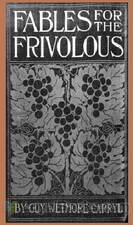 Fables for the Frivolous
Fables for the Frivolous
The Urban Rat and the Suburban Rat, The Persevering Tortoise and the Pretentious Hare, The Ambitious Fox and the Unapproachable Grapes.... If some of these titles seem vaguely familiar to you, you wouldn't be mistaken! Fables for the Frivolous by Guy Wetmore Carryl contains some well-known fables in a modern packaging, with a delightful new twist! The complete title of the original published in 1898 was Fables for the Frivolous (With apologies to La Fontaine) and it was the first published work of this gifted American journalist, humorist and poet... | |
By: Kate Douglas Wiggin (1856-1923) | |
|---|---|
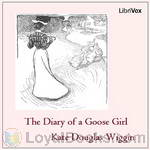 The Diary of a Goose Girl
The Diary of a Goose Girl
The "Goose Girl" is a young and somewhat independent lady who, in fleeing from her lover with whom there had been a "little tiff," became a "paying guest" at poultry farm in a quiet, out-of-the-way Sussex village, in the care of which she participates. From the author of Mother Carey's Chickens, The Bird's Christmas Carol, etc. | |
By: Arthur Scott Bailey (1877-1949) | |
|---|---|
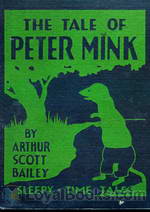 The Tale of Peter Mink
The Tale of Peter Mink
Arthur Scott Bailey (1877 – 1949) was author of more than forty children’s books. Bailey’s writing has been described thusly by the Newark Evening News: “Mr. Bailey centered all his plots in the animal, bird and insect worlds, weaving natural history into the stories in a way that won educator’s approval without arousing the suspicions of his young readers. He made it a habit to never ‘write down’ to children and frequently used words beyond the average juvenile vocabulary, believing that youngsters respond to the stimulus of the unfamiliar.” | |
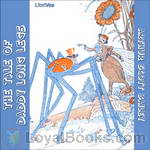 The Tale Of Daddy Long Legs
The Tale Of Daddy Long Legs
Summary text (Arthur Scott Bailey (1877 – 1949) was author of more than forty children’s books. He was born on November 15, 1877, in St. Albans, Vermont, United States, the second child of Winfield Scott Bailey and Harriet Sarah Goodhue. THERE was great excitement in the neighborhood of Farmer Green’s house. Rusty Wren had found some strange tracks. And nobody knew whose they were. Now, when they were puzzled like that the field- and forest-folk usually went straight to Mr. Crow for advice... | |
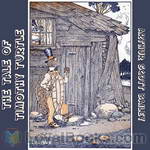 The Tale of Timothy Turtle
The Tale of Timothy Turtle
One of Bailey’s “Sleepy-Time Tales,” this is the story of Timothy Turtle, a grumpy old turtle trying to live his life alongside Black Creek. Timothy’s adventures lead him to encounters with other Black Creek creatures, Fatty Coon, Mr. Crow, Brownie Beaver, Peter Mink, Ferdinand Frog, and even the local boy, Johnnie Green. | |
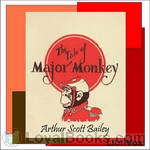 The Tale of Major Monkey
The Tale of Major Monkey
Arthur Scott Bailey was the author of more than forty children’s books.Mr. Bailey centered all his plots in the animal, bird and insect worlds, weaving natural history into the stories in a way that won educator’s approval without arousing the suspicions of his young readers. | |
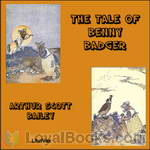 The Tale of Benny Badger
The Tale of Benny Badger
Mr. Bailey centered all his plots in the animal, bird and insect worlds, weaving natural history into the stories in a way that won educator’s approval without arousing the suspicions of his young readers. He made it a habit to never ‘write down’ to children and frequently used words beyond the average juvenile vocabulary, believing that youngsters respond to the stimulus of the unfamiliar.” | |
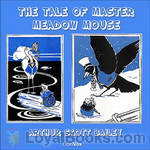 The Tale of Master Meadow Mouse
The Tale of Master Meadow Mouse
This volume in the series, Sleepy-Time Tales, follows the adventures of Master Meadow Mouse as he moves his home to various (safer) places, and tells how he cleverly avoids creatures such as Fatty Coon, Mr. Crow, and Mr. Great Blue Heron, just to name a few. | |
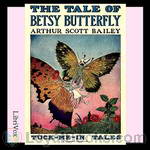 The Tale of Betsy Butterfly
The Tale of Betsy Butterfly
Arthur Scott Bailey (1877 – 1949) was the author of more than forty children’s books. “Mr. Bailey centered all his plots in the animal, bird and insect worlds, weaving natural history into the stories in a way that won educator’s approval without arousing the suspicions of his young readers. He made it a habit to never ‘write down’ to children and frequently used words beyond the average juvenile vocabulary, believing that youngsters respond to the stimulus of the unfamiliar.” (Wikipedia) | |
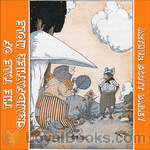 The Tale of Grandfather Mole
The Tale of Grandfather Mole
Arthur Scott Bailey (1877 – 1949) was the author of more than forty children’s books.Bailey’s writing has been described thusly by the Newark Evening News: “Mr. Bailey centered all his plots in the animal, bird and insect worlds, weaving natural history into the stories in a way that won educator’s approval without arousing the suspicions of his young readers. He made it a habit to never ‘write down’ to children and frequently used words beyond the average juvenile vocabulary, believing that youngsters respond to the stimulus of the unfamiliar.” | |
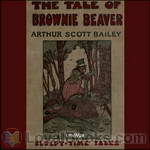 The Tale of Brownie Beaver
The Tale of Brownie Beaver
Arthur Scott Bailey was the author of more than forty children’s books, centered all his plots in the animal, bird and insect worlds, weaving natural history into the stories in a way that won educator’s approval without arousing the suspicions of his young readers. The Tale of Brownie Beaver is another adventure of the friends and neighbours of Pleasant Valley. You will hear how Brownie keeps a house safe from a Freshet and how he receives his weekly newspaper and not to forget the making of a new suit. | |
 Tale of Miss Kitty Cat
Tale of Miss Kitty Cat
The rats and the mice thought that Miss Kitty Cat was a terrible person. She was altogether too fond of hunting them. They agreed, however, that in one way it was pleasant to have her about the farmhouse. When she washed her face, while sitting on the doorsteps, they knew—so they said!—that it was going to rain. And then Mrs. Rat never would let her husband leave home without taking his umbrella. As a rule Miss Kitty Cat didn't look at all frightful. Almost always she appeared quite unruffled, going about her business in a quiet way and making no fuss over anything... | |
 Tale of Dickie Deer Mouse
Tale of Dickie Deer Mouse
"All the four-footed folk in the neighborhood agreed that Dickie Deer Mouse was well worth knowing. Throughout Pleasant Valley there was no one else so gentle as he . . . He was always tastefully dressed in fawn color and white. And except sometimes in the spring, when he needed a new coat, he was a real joy to see. For he both looked and acted like a well-bred little person."In one of Bailey's "Sleepy-Time Tales", we follow a polite little mouse called Dickie as he hunts for a summer home, finds food, and avoids various predators... | |
 Tale of Buster Bumblebee
Tale of Buster Bumblebee
Buster Bumblebee and his family move into a new home. Excitement and buzzing abound. Buster meet a strange fellow called a carpenter bee, way too many chirpy crickets, and even finds his own long lost sister. Later in his adventurous life, Buster learns of another kind of Bee, a Raising Bee and how much food is available for everyone there. All in all, this tale will bring smiles and grins to listeners young and old as it tells of Buster Bumblebee, a young bee with a lot to learn but a heart of gold. | |
 Tale of Cuffy Bear
Tale of Cuffy Bear
A whimsical tale about the life of Cuffy bear on Blue Mountain. Cuffy is a very mischevious, disobedient bear who gets into all kinds of scrapes because he refuses to listen to his parents. He most always ends up in trouble or pain as a result of his mishaps. | |
 Tale of Mrs. LadyBug
Tale of Mrs. LadyBug
Have you ever seen a LadyBug and wondered what the cute little bug with the dots on her back was thinking? And why she seemed in such a rush? Well here is your chance to peek into her thoughts and enjoy some of her daily triumphs and disasters. "Little Mrs. Ladybug was a worker. Nobody could deny that. To be sure, she had to stop now and then to talk to her neighbors, because Mrs. Ladybug dearly loved a bit of gossip. At the same time there wasn't anyone in Pleasant Valley that helped Farmer Green more than she did... | |
 Tale of Pony Twinkleheels
Tale of Pony Twinkleheels
"When Johnnie Green sent him along the road at a trot, Twinkleheels' tiny feet moved so fast that you could scarcely have told one from another. Being a pony, and only half as big as a horse, he had to move his legs twice as quickly as a horse did in order to travel at a horse's speed. Twinkleheels' friends knew that he didn't care to be beaten by any horse, no matter how long-legged. "It's spirit, not size, that counts," Farmer Green often remarked as he watched Twinkleheels tripping out of the yard, sometimes with Johnnie on his back, sometimes drawing Johnnie in a little, red-wheeled buggy... | |
 Tale of Henrietta Hen
Tale of Henrietta Hen
The Tale of Henrietta Hen is a cute children's book filled with the adventures of a hen named Henrietta. | |
 Tale of Freddie Firefly
Tale of Freddie Firefly
He was able to draw a deep breath again as they reached the field of red clover, where Peppery Polly Bumblebee settled quickly upon a clover-top and began sucking up the sweet nectar with her long tongue. For some time she worked busily without saying a word. And indeed, how could she have spoken with her tongue buried deep in the heart of a clover blossom? (From The Tale of Freddy Firefly) | |
By: Walter Crane (1845-1915) | |
|---|---|
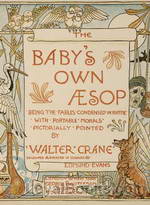 Baby's Own Aesop
Baby's Own Aesop
“Baby’s Own Aesop” presents the fables as one-stanza limericks, each “pictorially pointed” by Walter Crane, the noted painter and illustrator. He apprenticed to master wood-engraver, William James Linton, who furnished the draft of the book’s poems for Crane to edit. | |
By: Frank Richard Stockton | |
|---|---|
 Round-about Rambles
Round-about Rambles
ROUND-ABOUT RAMBLES, In Lands of FACT AND FANCYBY FRANK R STOCKTONPREFACECome along, boys and girls! We are off on our rambles. But please do not ask me where we are going. It would delay us very much if I should postpone our start until I had drawn you a map of the route, with all the stopping-places set down. We have far to go, and a great many things to see, and it may be that some of you will be very tired before we get through. If so, I shall be sorry; but it will be a comfort to think that none of us need go any farther than we choose... | |
By: George Alfred Henty (1832-1902) | |
|---|---|
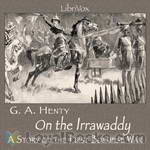 On the Irrawaddy, A Story of the First Burmese War(1897)
On the Irrawaddy, A Story of the First Burmese War(1897)
With the exception of the terrible retreat from Afghanistan, none of England's many little wars have been so fatal--in proportion to the number of those engaged--as our first expedition to Burma. It was undertaken without any due comprehension of the difficulties to be encountered, from the effects of climate and the deficiency of transport; the power, and still more the obstinacy and arrogance of the court of Ava were altogether underrated; and it was considered that our possession of her ports would assuredly bring the enemy, who had wantonly forced the struggle upon us, to submission... | |
By: Helen Hunt Jackson (1830-1885) | |
|---|---|
 Letters from a Cat
Letters from a Cat
Letters from a Cat: published by her mistress for the benefit of all cats and the amusement of little children is a collection of letters that a little girl receives from her pet while she is away from home. They tell of her pet’s adventures and misadventures. The book includes a preface which gives a little biography of the cat including its sad demise. H.H. was the alias of Helen Maria Hunt Jackson (1830 –1885) who is better known for her novel Ramona in which she dramatized the mistreatment of Native Americans and which formed part of her campaign for improved treatment of Native Americans by the U.S. Government. | |
By: Carl Sandburg (1878-1967) | |
|---|---|
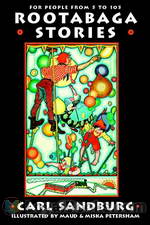 Rootabaga Stories
Rootabaga Stories
Carl Sandburg is beloved by generations of children for his Rootabaga Stories and Rootabaga Pigeons (which is not in the public domain), a series of whimsical, sometimes melancholy stories he originally created for his own daughters. The Rootabaga Stories were born of Sandburg’s desire for “American fairy tales” to match American childhood. He felt that the European stories involving royalty and knights were inappropriate, and so populated his stories with animals, skyscrapers, trains, corn fairies, and other colorful characters. | |
By: Richard Jefferies (1848-1887) | |
|---|---|
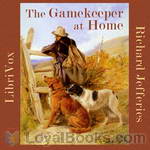 The Gamekeeper at Home
The Gamekeeper at Home
Richard Jefferies (1848 – 1887) was born and spent his childhood on a farm at Coate,Wiltshire. He joined the ‘Wiltshire and Gloucestershire Standard’ in 1868 and also started to write articles and pamphlets on various agricultural issues and local history topics. He is best known for his depiction of English rural life in essays, books of natural history, and novels. This classic of English nature writing gives an idea of the life of a gamekeeper in southern England in the second half of the nineteenth century. | |
By: Elliott O’Donnell (1872—1965) | |
|---|---|
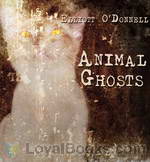 Animal Ghosts
Animal Ghosts
Summary: This is a collection of ghost stories in which the antagonists are various animals. Divided up into chapters of ghost sightings by each group of animals, you will hear of hauntings by dogs, cats, birds, jungle animals, etc. (Summary by Allyson Hester) | |
By: Arabella B. Buckley (1840-1929) | |
|---|---|
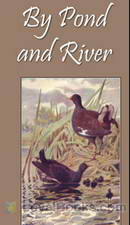 By Pond and River
By Pond and River
In By Pond and River, another of Arabella Buckley’s wonderful science books for children, she explains the habitats of ponds and rivers, exposing children to the animals and plant life that are found there. | |
By: James Otis (1848-1912) | |
|---|---|
 Toby Tyler or Ten Weeks with a Circus
Toby Tyler or Ten Weeks with a Circus
Toby Tyler tells the story of a ten year-old orphan who runs away from a foster home to join the traveling circus only to discover his new employer is a cruel taskmaster. The difference between the romance of the circus from the outside and the reality as seen from the inside is graphically depicted. Toby's friend, Mr. Stubbs the chimpanzee, reinforces the consequences of what happens when one follows one's natural instincts rather than one's intellect and conscience, a central theme of the novel. | |
By: Ethel C. Pedley (1859-1898) | |
|---|---|
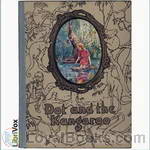 Dot and the Kangaroo
Dot and the Kangaroo
Dot and the Kangaroo, written in 1899, is a children’s book by Ethel C. Pedley about a little girl named Dot who gets lost in the Australian outback and is eventually befriended by a kangaroo and several other marsupials. | |
By: John Burroughs (1837-1921) | |
|---|---|
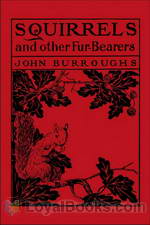 Squirrels and other Fur-Bearers
Squirrels and other Fur-Bearers
Squirrels and other Fur-Bearers, a collection of essays by American naturalist and essayist, John Burroughs, provides fascinating insight into the daily life of small woodland creatures. Included in these essays are Burrough’s personal observations of squirrels, rabbits, mink, and chipmunks, as well as numerous other small mammals. Highly recommended for anyone, both young and old, with an interest in nature and wildlife! | |
 Bird Stories from Burroughs
Bird Stories from Burroughs
What a better way to learn about birds than to read this delightful collection of interesting bird stories! John Burroughs was a nature essayist. These creative, observation- and emotion-driven stories about birds (largely from the Northeastern states), have been gathered together into a single volume from all his various works. Every chapter follows one species of birds, and the chapters have been arranged chronologically according to the time of the bird's arrival during the year. This collection has lovely illustrations of the birds by Louis Agassiz Fuertes, and some stories also have poems to go along with them. | |
By: H. Rider Haggard (1856-1925) | |
|---|---|
 The Brethren
The Brethren
Set in the days of the Crusaders, this books tells of a young maiden named Rosamund, and her twin cousins. Godwin is the grey eyed thoughtful man, and Wulf is the blue eyed warrior. They are both knights of England and they are both in love with their fair cousin. But the riddle of the story is which does Rosamund love?The adventure begins when Rosamund is taken from England and carried to the East. The plot thickens as the two young knights follow her in hopes of rescuing her from the Muslim leader, Saladin... | |